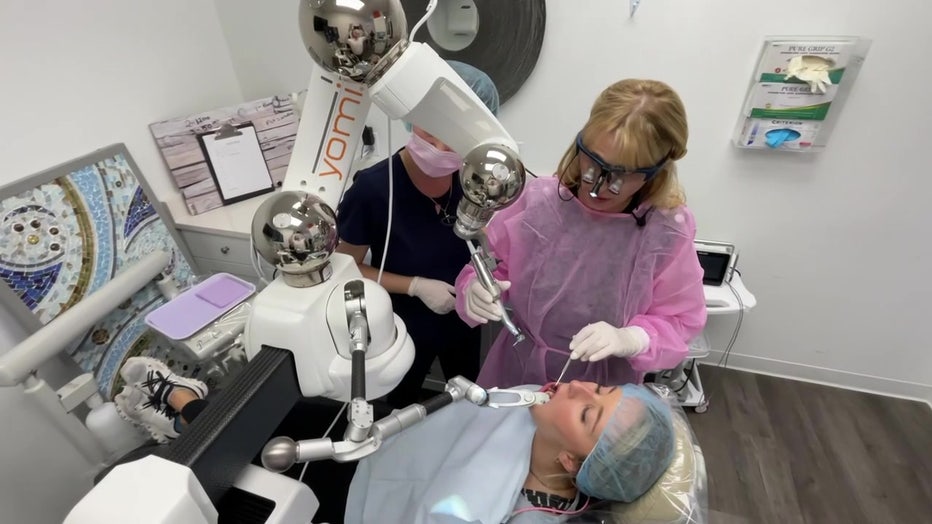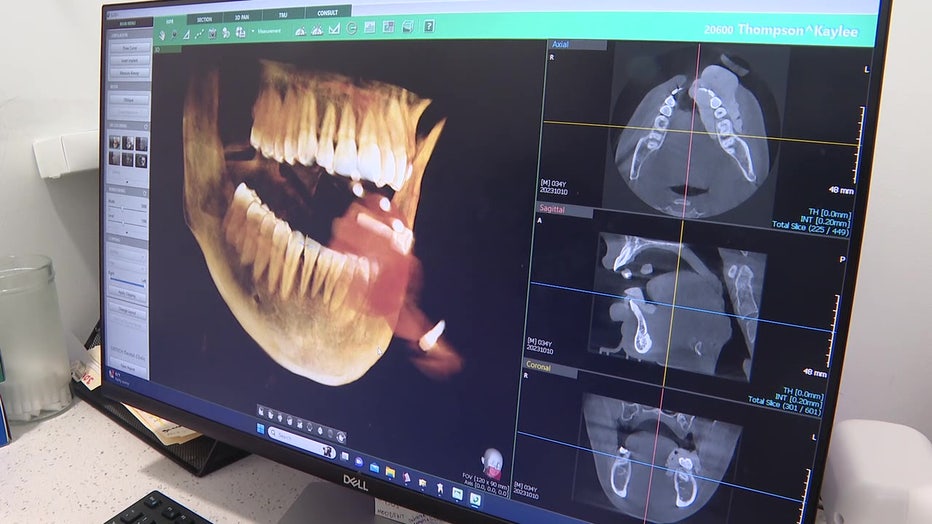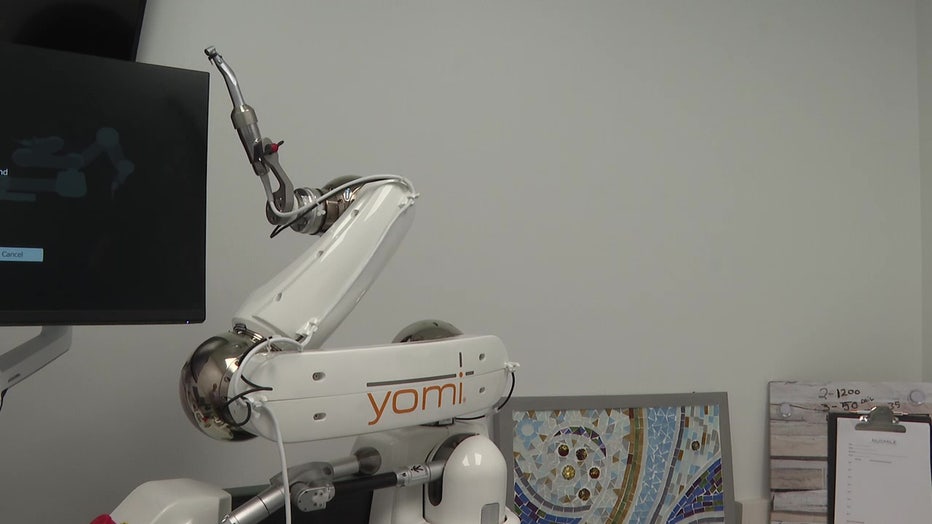Bay Area dentist using robotic system for dental surgery
SEMINOLE, Fla. - Going to the dentist can sometimes be a pain, especially if you have surgery.
It can take several weeks to recover, but now a new advancements in robotics is changing that dramatically, cutting down on recovery time and overall pain. A local dentist is one of the first in the Bay Area to use the first and only robotic system for dental surgery.
Dentistry has been around since 7,000 B.C. It's one of the oldest medical professions, but now in 2023 dentistry looks much different at Dr. Nadia O'Neal's office in Seminole. There's 3-D imaging and robotic arms.
"I didn't even dream that technology would go so far," Dr. O'Neal said.

READ: BaxterBot: Virtual Bernadoodle helps students learn in Pasco County
Yomi is the first and only FDA-approved robot system used for dental surgery.
"We have robotic surgery in the medical field. Now it's time to have robot surgery in the dental field," Dr. O'Neal explained.
Dr. O'Neal practiced dentistry for more than 25 years in Ukraine before coming to the U.S. and graduating from NYU. She started using Yomi in April becoming the 22nd dentist in Florida to use the technology and has now performed more than 250 robotic implants.
"People come back the next day or the same day with minimal pain or even no pain," Dr. O'Neal said.
Because of how the technology works, Yomi doesn't require the doctor to make an incision.

"Every incision produces inflammation in the body which takes time to heal," Dr. O'Neal said.
A traditional implant surgery may take up to an hour and a couple weeks to recover from, but as Dr. O'Neal explains a Yomi robotic assisted surgery takes about 20 minutes and usually patients feel fine right after.
READ: USF programs prepares students, keeps nurses in Florida
"There was no pain the next day, and it was already like healed," patient Yevgeniya Werner said.
Werner has had 3 traditional implant surgeries which she says took more than three months to recover from.

"This is what we need to do. Grow and learn more," Werner said.
Yomi works by first taking a 3-D scan of the patient's mouth, then based on the results, comes up with a treatment plan the doctors reviews and uses as a guide during the surgery.
"It's reassuring to patients to know that the robot makes the clinician more accurate and precise. They can see better, and it's less invasive," Yomi Florida Regional Manager Barbara Logan said.
Going forward, Dr. O'Neal believes robotics will only continue to expand in dentistry. So what does she expect next?
"Not assisted," Dr. O'Neal said. "It's going to be robotic surgery or robotic implant placement or robotic crown. It will be in dentistry for a long time."


